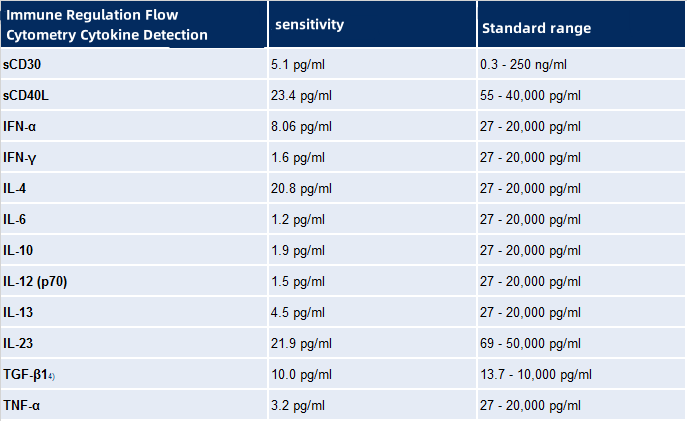Immune Regulation Related Factors Analysis Service
Submit Inquiry
How to order?


Email:
info@MtoZ-Biolabs.comEmail:
info@MtoZ-Biolabs.comTo maintain the immune system's homeostasis, multiple control systems are essential for managing infections, inhibiting tumor growth, preventing inflammation, and avoiding autoimmune diseases. T cells are known to be critical in this regulatory process. Specifically, Th3 cells primarily secrete TGF-β along with varying levels of IL-4 and IL-10. Natural regulatory T cells and Tr1 cells can suppress cytokine production in vitro through CD4+/CD25- T cells or antigen-specific Th1 or Th2 cells. Other T cell types, such as Th1 cells, produce INF-γ, and nkT cells are noted for their ability to release regulatory cytokines including IL-4, IL-10, and IL-13.
MtoZ Biolabs employs flow cytometry to quantitatively analyze cytokines and proteins involved in immune regulation. This technique offers enhanced sensitivity and a wider range of detection. The following table lists cytokines detectable in human samples, with services also available for other species.

Figure 2. Detection of Immunomodulation-Related Factors by Flow Cytometry
In the technical report, MtoZ Biolabs will provide you with detailed technical information, including:
How to order?


Submit Inquiry
